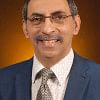
Nawshad Ahmed
Dr Nawshad Ahmed, a retired UN official, is an economist and urban planner.
Dr Nawshad Ahmed, a retired UN official, is an economist and urban planner.
There is ample evidence showing that both domestic and foreign direct investment (FDI) have a significant positive effect on economic growth.
Higher tariffs on Bangladeshi exports will cost more for American consumers, resulting in reduced demand.
Economics, the subject, and its application make it both a science and art.
The Local Government Reform Commission’s recommendation to give zila parishads a stronger planning function makes sense.
The abrupt decision by the Trump administration to freeze almost all USAID operations globally has surprised millions of vulnerable people around the world.
Local government reform must continue, keeping future demand for services in view.
Effective political leadership is essential for achieving democratic governance.
In Bangladesh, challenges hindering the achievement of economic equality are: low public expenditure on education, training, health, rural development and social protection.
It is important to encourage all development players to invest money and energy to maximise their contributions towards the GDP growth.
Competition law is not an end in itself and to use it, we need to have a good understanding of how markets work.
It has been observed that monitoring & evaluation functions within ministries and their departments are poorly understood, under-funded, and underutilised.
Globally, the older people are called senior citizens and they receive various support and benefits.
Unplanned transport infrastructure.
Urban environmental management challenges are quite serious in Bangladesh due to unplanned urbanisation, and with no national policy to regulate it.
Khulna, the third largest city of Bangladesh, with a current population of approximately 950,000 and land area spanning 40.8 square kilometres, is the only city in the country which has been experiencing a negative population growth over the last two decades.
Geographic inequalities can bring political tensions between local government leaders and national level policymakers and politicians.
The paved road network in Bangladesh has increased dramatically from 600 km in 1947, to 3,600 km in 1971, to the current figure of 375,000 km.
Improving road and railway connectivity is crucial for reaping the benefits of Padma Bridge.